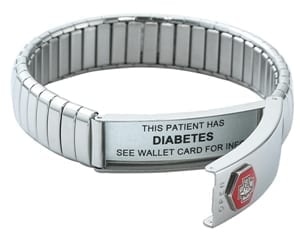Routine health screenings and diagnostic tests can save the lives of both men and boys.
In the U.S., over five million men have been diagnosed with some form of cancer. Prostate, colon, lung, and skin cancers most often affect men.
According to the Centers for Disease Control and Prevention, more men die from cancer, heart disease, injuries, stroke and diabetes than women. However, they are half as likely to go to the doctor for annual exams and preventive care.
Men may lower their risks by taking control of their health care and following these tips:
1. Be sure to schedule routine tests for blood pressure, cholesterol, and blood glucose testing. Then find out what routine health screenings you should have based on your age and risk factors. Learn how to perform self-exams for testicular and skin cancers.
2. Don’t smoke. If you do… quit! Smoking can shorten lives by as much as 13 years.
3. Be active. Do some kind of exercise or activity for at least a half an hour, 3-4 times per week. Even activities, such as yard work or fast-paced walking the dog, count.
4. Wear sunscreen – one that’s free of oxybenzone, retinyl palmitate (vitamin A), and insect repellent.
Surveys show that 34% of men wear sunscreen, compared to 78% of women.
Start now. It’ll reduce your cumulative lifetime exposure to damaging UV radiation. See Sunscreen Additive Linked to Skin Damage.
5. Eat a balance diet of fruit and vegetables, whole grains, lean meats, and low or no-fat dairy products.
If you drink alcohol, make sure consumption is moderate, that is, it’s limited to two drinks per day or less.
6. Get seven to nine hours of sleep per night.





